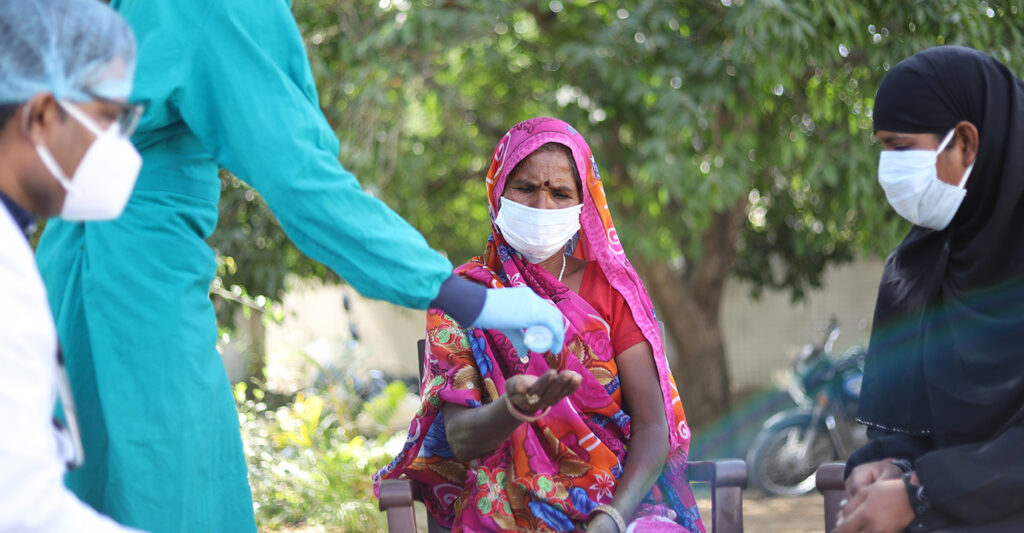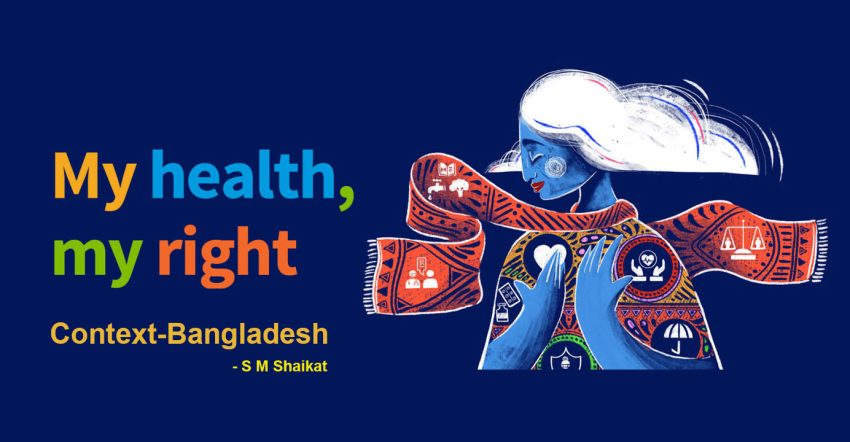It is essential to reflect on the state of global healthcare, particularly in countries like Bangladesh, where ensuring access to quality health services remains a persistent challenge. The theme for this year’s World Health Day, ‘My health, my right’, underscores the fundamental importance of healthcare as a human right and calls for concerted efforts to address existing disparities and barriers to healthcare access.
The WHO Council on the Economics of Health for All has highlighted that while many countries recognize health as a human right in their constitutions, millions of people worldwide still lack access to essential health services. In Bangladesh, while access to healthcare is recognized as a basic human need, it has not been explicitly codified as a fundamental human right within the country’s constitution. Despite significant strides in healthcare provision and public health initiatives, the absence of constitutional recognition of health as a fundamental right poses challenges in ensuring universal access to quality healthcare services. The existence of this gap emphasizes the imperative for legislative reforms and policy interventions aimed at elevating healthcare to the stature of an intrinsic human right, thereby reinforcing the government’s duty to prioritize and safeguard the health and well-being of its populace.
Bangladesh is actively addressing various challenges on its path to achieving health equity. While issues like inadequate infrastructure and funding deficits persist, efforts are underway to tackle them. Recognizing health as a fundamental human right, the country is taking a holistic approach to address broader determinants of health such as sanitation, nutrition, and education. Investments in healthcare workforce development and health education are empowering individuals to make informed decisions, in line with the commitment to achieve Universal Health Coverage. However, the stark reality of healthcare disparities is evident, with 3.8 crore people battling kidney disease, and only 10% able to afford life-saving treatments. Cancer poses another significant burden, with 1.6 million patients in Bangladesh, and high costs of specialized medications creating financial strain. These financial barriers often lead to delayed diagnoses and compromised outcomes, highlighting the urgent need for comprehensive healthcare reforms to ensure equitable access and affordability for all.

Again, the health challenges confronting Bangladesh’s youth population have far-reaching implications, particularly in the context of harnessing the population dividend. High rates of malnutrition, limited healthcare access, and prevalent infectious diseases pose barriers to realizing the full potential of a youthful demographic. These challenges underscore the importance of addressing adolescent reproductive health and mental health issues, not only to safeguard individual well-being but also to unlock the productive potential of the youth demographic. By prioritizing targeted interventions that cater to youth health and well-being, the country can leverage the demographic dividend to drive sustainable development and economic growth.
Additionally, fostering a culture of accountability and transparency within the healthcare system is crucial. Citizens can hold policymakers and healthcare providers accountable through mechanisms such as public forums, community meetings, and advocacy campaigns. By amplifying their voices and collectively advocating for their health rights, individuals can drive positive change and contribute to the realization of health equity. On the other hand, at the state level, ensuring health rights entails implementing policies and programs that prioritize equitable access to healthcare services for all citizens. This involves investing in healthcare infrastructure, strengthening primary healthcare systems, and expanding health coverage to marginalized and underserved populations. The government can also enact legislation that codifies health as a fundamental human right and establishes mechanisms for monitoring and enforcing compliance with health-related laws and regulations.
Empowering communities to advocate for their health needs and rights is pivotal in realizing the right to health. This can be achieved through community-based initiatives, health education programs, and the promotion of participatory decision-making processes. By engaging communities, and civil society as partners in healthcare delivery, we can foster a culture of health promotion and disease prevention.
In light of Bangladesh’s remarkable achievements in public health, including being validated by the World Health Organization for the elimination of visceral leishmaniasis and its success in COVID-19 vaccination efforts, there is growing momentum to ensure that health remains a fundamental human right for all citizens. These accomplishments demonstrate Bangladesh’s commitment to improving healthcare access and addressing public health challenges. As we celebrate these milestones, it is essential to build upon this progress by strengthening health systems, investing in healthcare infrastructure, and prioritizing health education and promotion. By leveraging the achievements and lessons learned, Bangladesh can further advance towards achieving health equity and fulfilling the vision of ‘My health, my right’ for all its citizens.
As we commemorate World Health Day 2024, let us recommit ourselves to the vision of health for all. By prioritizing the right to health and addressing systemic barriers, Bangladesh can move closer to achieving universal health coverage and ensuring that every individual has the opportunity to lead a healthy and productive life.
Publication details
Article Published on The News Hour
Date: April 7, 2024
Images courtesy: The News Hour
Link to the Article: https://newshour.media/2024/04/07/my-health-my-right-context-bangladesh/

